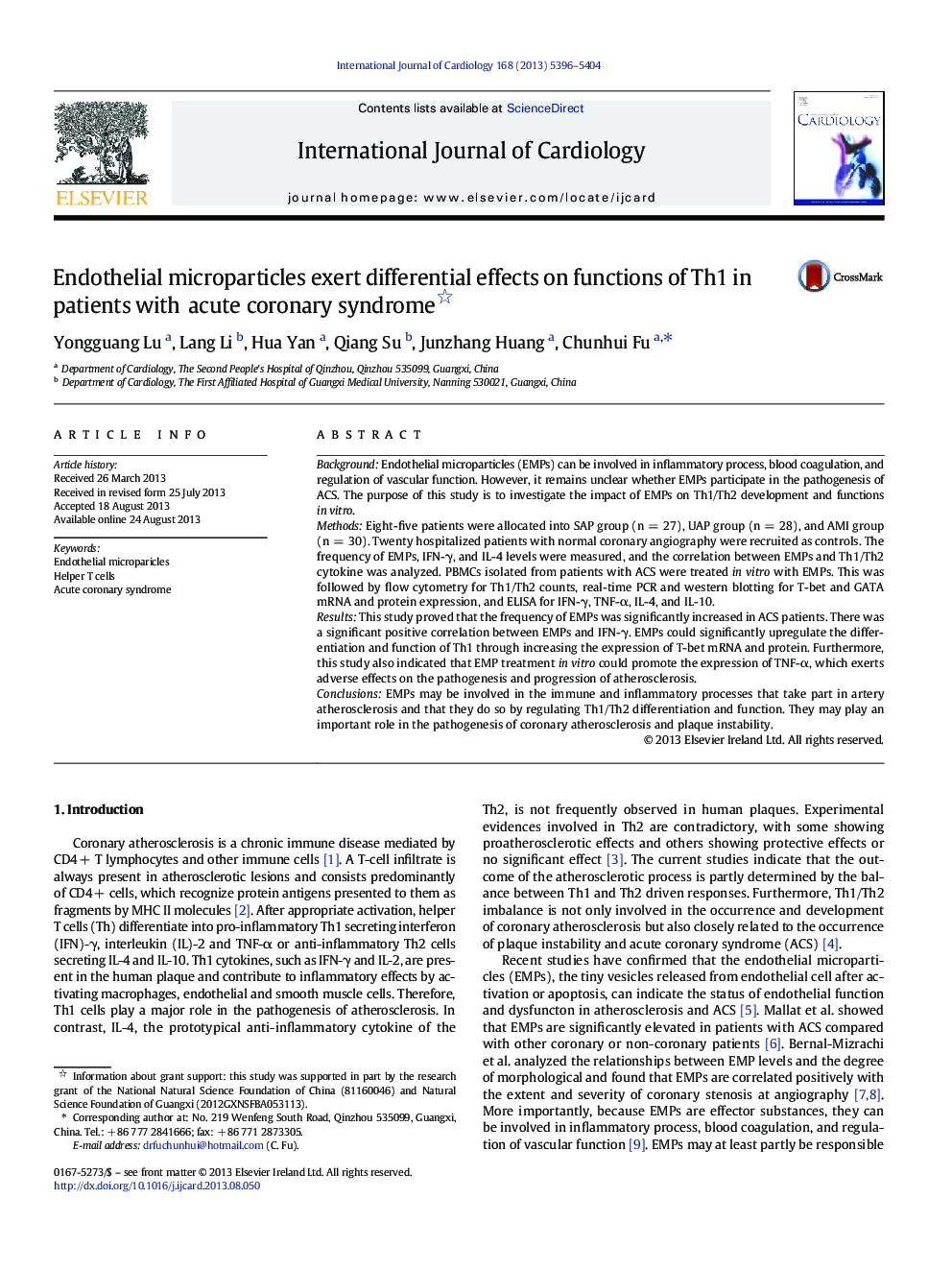| Article ID | Journal | Published Year | Pages | File Type |
|---|---|---|---|---|
| 5975137 | International Journal of Cardiology | 2013 | 9 Pages |
BackgroundEndothelial microparticles (EMPs) can be involved in inflammatory process, blood coagulation, and regulation of vascular function. However, it remains unclear whether EMPs participate in the pathogenesis of ACS. The purpose of this study is to investigate the impact of EMPs on Th1/Th2 development and functions in vitro.MethodsEight-five patients were allocated into SAP group (n = 27), UAP group (n = 28), and AMI group (n = 30). Twenty hospitalized patients with normal coronary angiography were recruited as controls. The frequency of EMPs, IFN-γ, and IL-4 levels were measured, and the correlation between EMPs and Th1/Th2 cytokine was analyzed. PBMCs isolated from patients with ACS were treated in vitro with EMPs. This was followed by flow cytometry for Th1/Th2 counts, real-time PCR and western blotting for T-bet and GATA mRNA and protein expression, and ELISA for IFN-γ, TNF-α, IL-4, and IL-10.ResultsThis study proved that the frequency of EMPs was significantly increased in ACS patients. There was a significant positive correlation between EMPs and IFN-γ. EMPs could significantly upregulate the differentiation and function of Th1 through increasing the expression of T-bet mRNA and protein. Furthermore, this study also indicated that EMP treatment in vitro could promote the expression of TNF-α, which exerts adverse effects on the pathogenesis and progression of atherosclerosis.ConclusionsEMPs may be involved in the immune and inflammatory processes that take part in artery atherosclerosis and that they do so by regulating Th1/Th2 differentiation and function. They may play an important role in the pathogenesis of coronary atherosclerosis and plaque instability.
